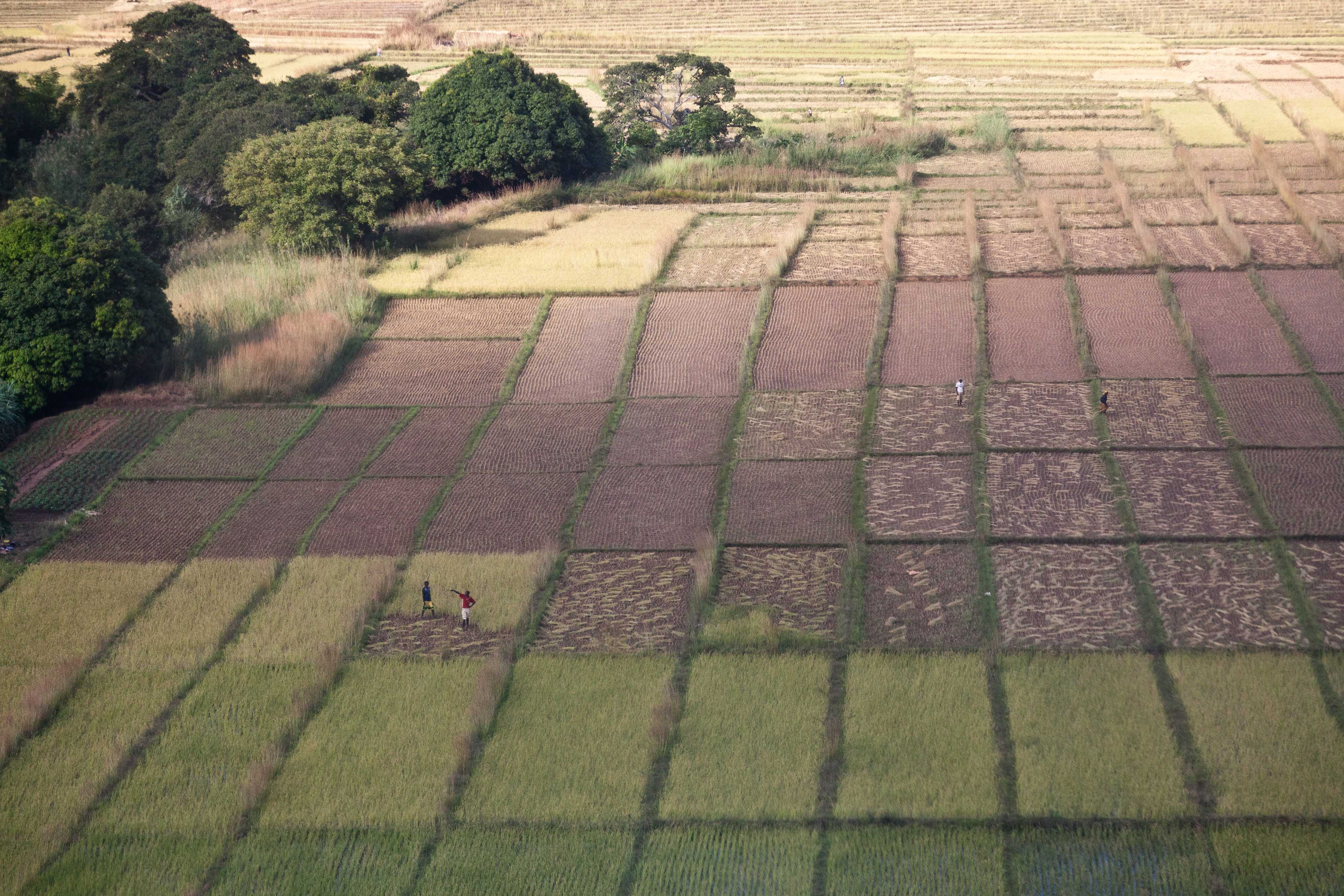El Salvador
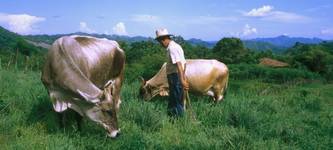
A revitalized national agricultural survey
With WAW support, the Government of El Salvador has taken over the running of and carried out a multipurpose national agricultural survey. A participatory workshop prompted more than 60 modifications to the original questionnaire, incorporating suggestions from agricultural organizations, rural youth and women, non-governmental organizations (NGOs), academics, and officials from the country’s Ministry of Agriculture and Livestock. The work carried out by the WAW framework will be integrated into the country’s agricultural census questionnaire.
Differences between Salvadoran farm types
There are marked differences between the average size of family farms and other segments of Salvadoran agriculture. Family business farms, for example, have an average size of 121.39 manzanas (mz), whereas family farms average 1.73 mz.
The biggest difference is in the corporate farm segment, where holdings have an average size of 523.65 mz. This has a direct correlation to farm income, which jumps from an average USD 7 433 for family farmers to USD 10 190 for family business farms and to USD 2 780 000 for corporate farms.
There is also direct correlation between rural credit and the average income of family farms. The poorest farmers receive less credit (just 8 percent of total farm lending), while the other categories receive a larger share. What’s more, only 32 000 farmers (out of an estimated total of 400 000) receive agricultural credit in El Salvador. The lack of land and credit explains the sizeable income differences among rural families.
Importantly, Salvadoran family farms are heavily involved in food production, which is a strategic asset for food security. Further analysis of the data will facilitate tailored investment policy recommendations.

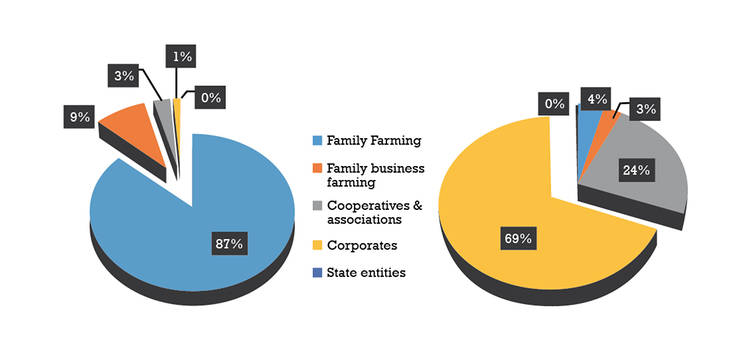
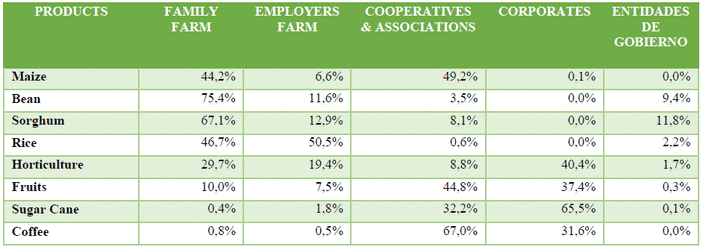
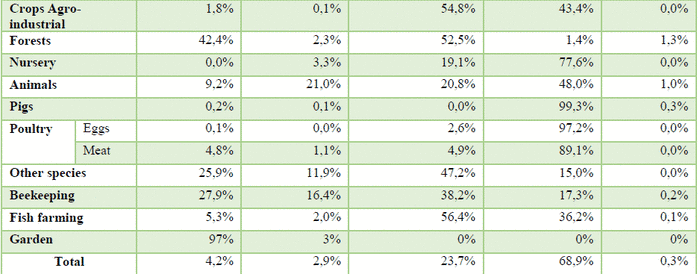
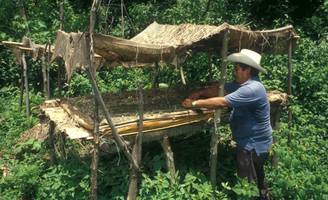
Data show the benefits of collective action
The typology of Salvadoran farms shows a clear imbalance to the disadvantage of family farms, but the data also show the positive effects of collective action.
The figures produced by the survey show the disparity between the number of family farms and their contribution to the net value generated by the farming sector: 90 percent of farms are family farms, of which 3 percent belong to cooperatives, 9 percent are family business farms and only 1 percent are corporate farms.
Of the family farms, 3 percent belong to associations or cooperatives, in which agricultural activities are driven by families, but certain upstream and downstream activities are shared.
In contrast, 69 percent of the overall net income of the Salvadoran agricultural sector comes from the corporate sector, 24 percent stems from family farms that are in a cooperative, 4 percent comes from family farms that are not in a cooperative and 3 percent stems from family business farms.
These figures show the value of collective action to family farms when it comes to increasing agricultural income.

